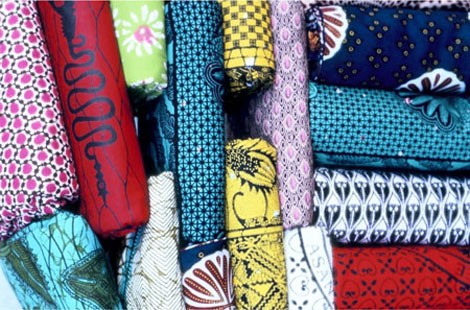 The Taskforce on the Seizure and Disposal of Pirated Ghanaian Textile Designs (TSDPGTD) has completed a nationwide sensitization exercise, which was aimed at educating dealers and the general public on the effects of pirated textile to Ghana’s economy.
The Taskforce on the Seizure and Disposal of Pirated Ghanaian Textile Designs (TSDPGTD) has completed a nationwide sensitization exercise, which was aimed at educating dealers and the general public on the effects of pirated textile to Ghana’s economy.
Similar sensitization workshops had already been carried out in Central, Western, Eastern, Ashanti, Volta, Brong Ahafo, Upper West and Upper East regions.
The sensitization by the Taskforce was carried out under the instruction of the President Dramani Mahama to ensure that dealers and the public understood the work of the Taskforce so as to help with information for the seizure of pirated textiles imported into the country.
Appiah Donyina, Chairman of the TSDPGTD who addressed the last in the series of fora across the country in Tamale on Thursday said, government had the obligation to ensure the protection of trade commodities and that counterfeit products must be seized.
He explained that government had no intentions to ban the importation of textiles into the country but rather frowned on the importation of pirated or fake textiles into the Ghanaian market noting that importers who had the habit of sending Ghanaian textile to China to be pirated must stop the act else they would not be spared when caught.
Mr Donyina indicated that over 6,000 pirated textiles had been burnt since the Taskforce started its work in 2010 and that 2,000 more had also been seized pending burning and stressed that more seizures would be done until it freed the Ghanaian market of pirated textiles.
Abdul-Rahaman Hannan Gundadow, Tamale Metropolitan Chief Executive who read a speech on behalf of the Northern Regional Minister Alhaji Limuna Mohammed-Muniru said the Taskforce was to protect the local textile industries to promote made-in-Ghana textile prints.
He observed that the Northern Region was a casualty to the collapse of the textile industry saying, “the collapse of the textile industry due to trade in pirated textile and imports of cheap textile led to loss of jobs and incomes that were derived from cotton farming”.
“In the 1980’s, the textile industry, which used to employ over 30,000 workers could only boast of less than 3,000 workers due to the fact that the industry is operating below 30 percent of its installed capacity”, he said.
Eugene Adarkwa Addai, a member of the Taskforce said every African textile had standards because they all had 100 percent cotton and could be identified by its label and self-edging.
He blamed Ghanaians for killing the local textile industry and urged importers who were interested in importing textile into the country to follow laid down rules at the Ministry of Trade and Industry to import counterfeit-free products.


